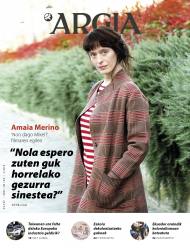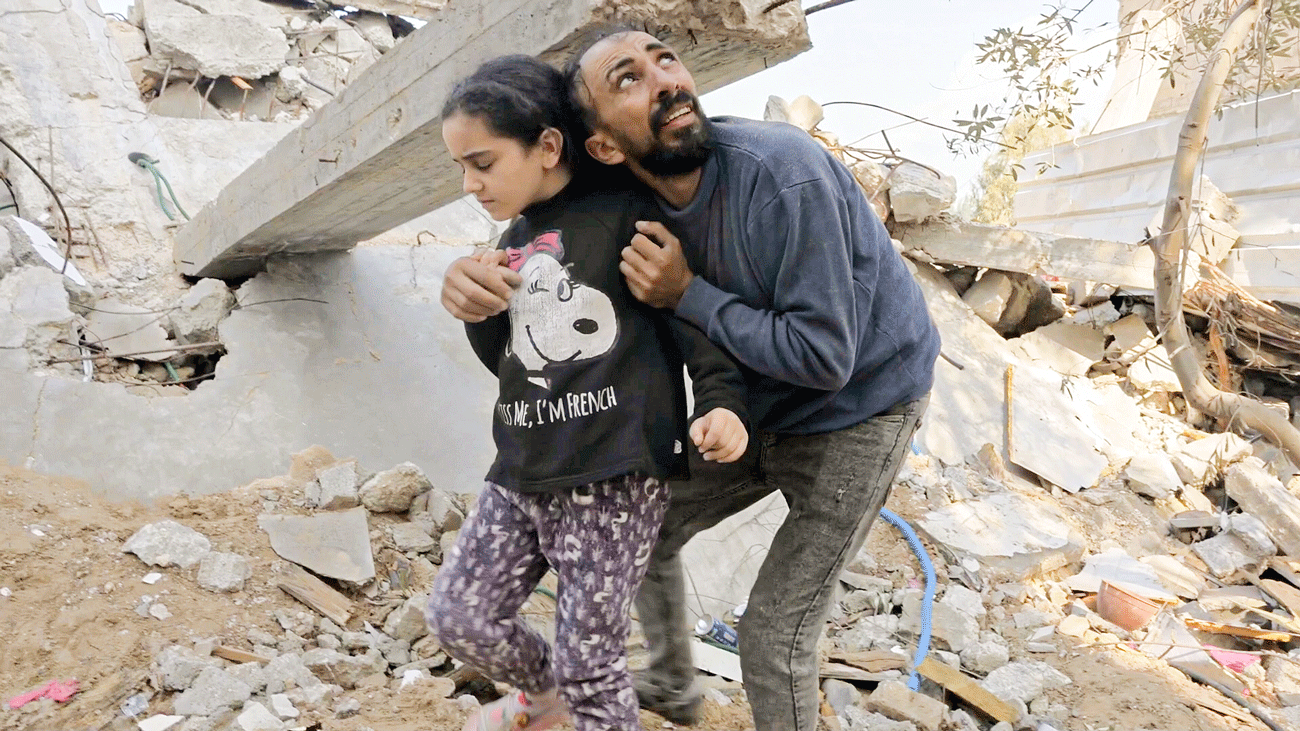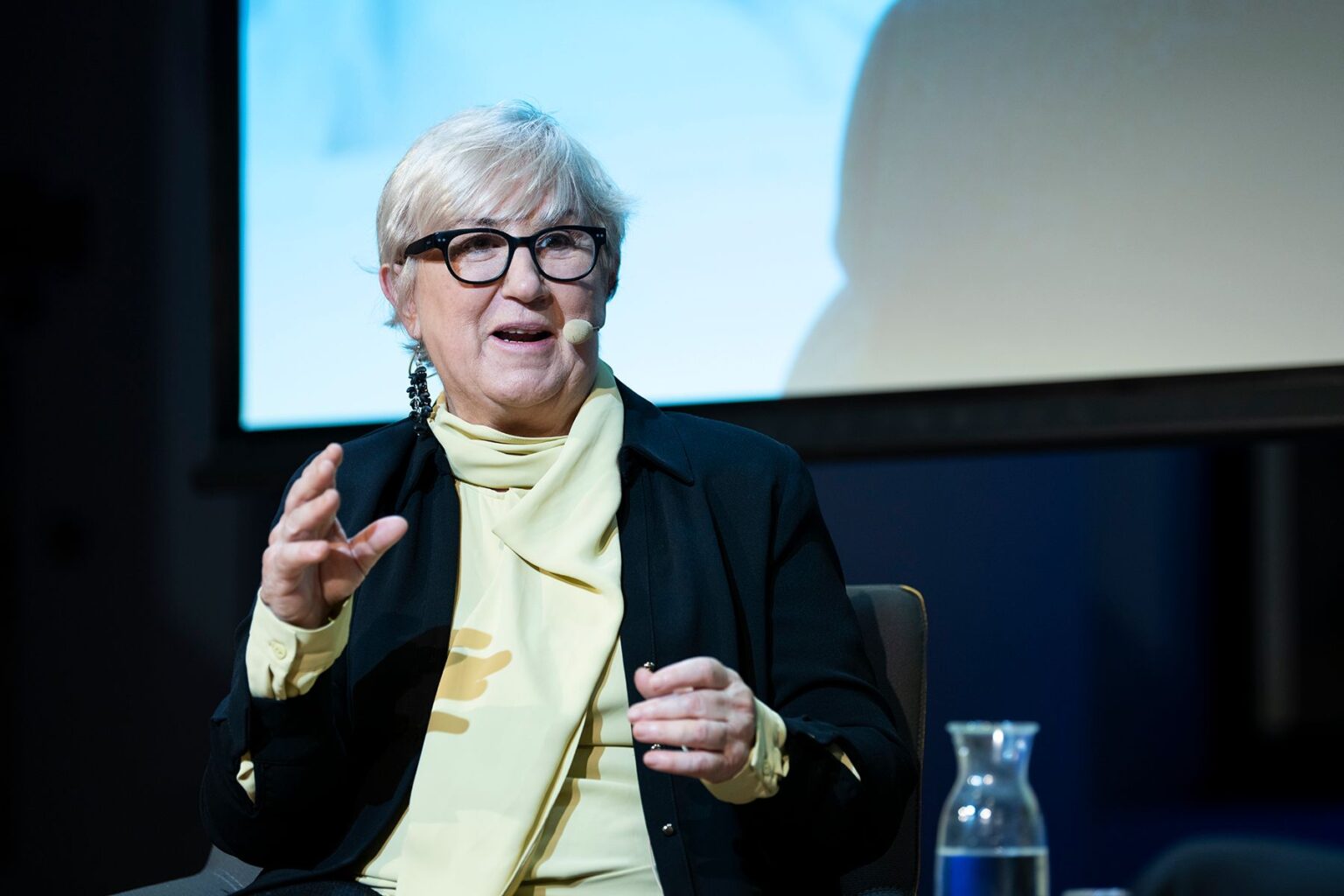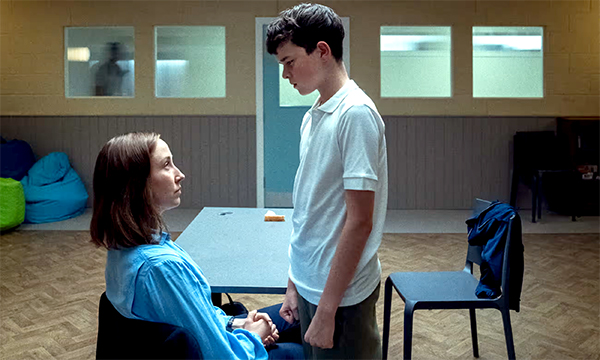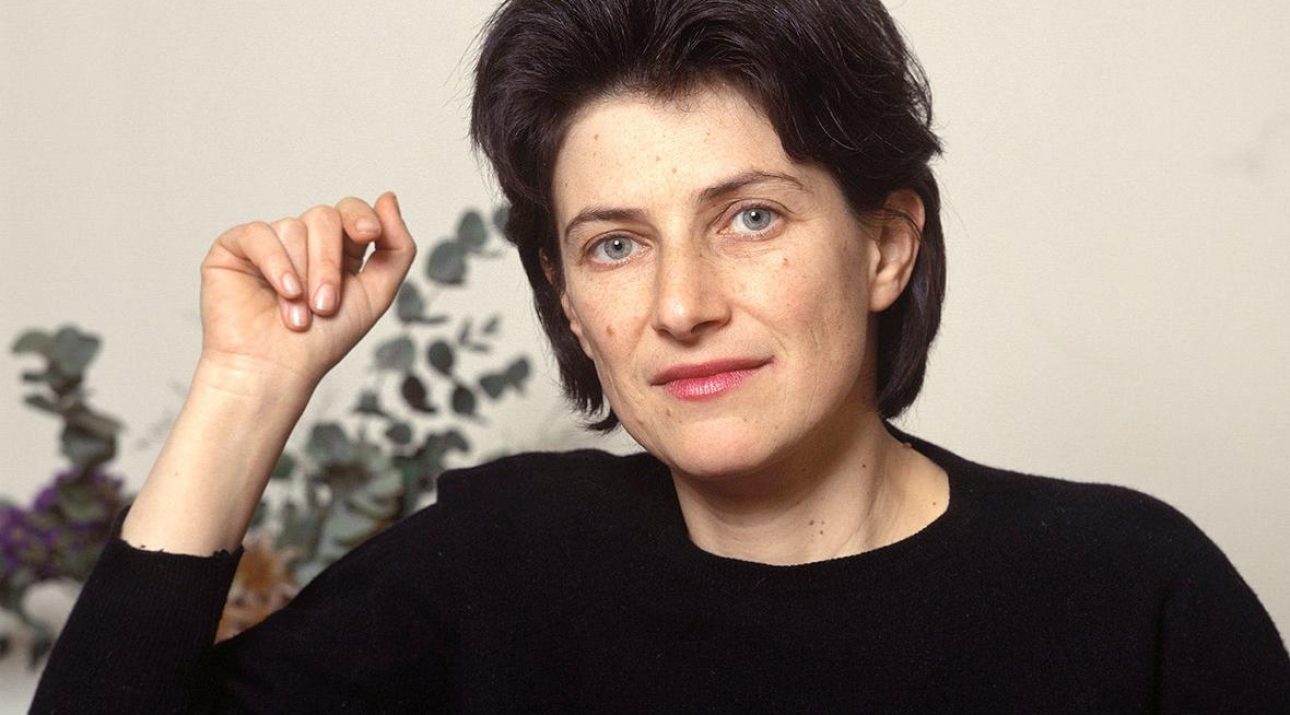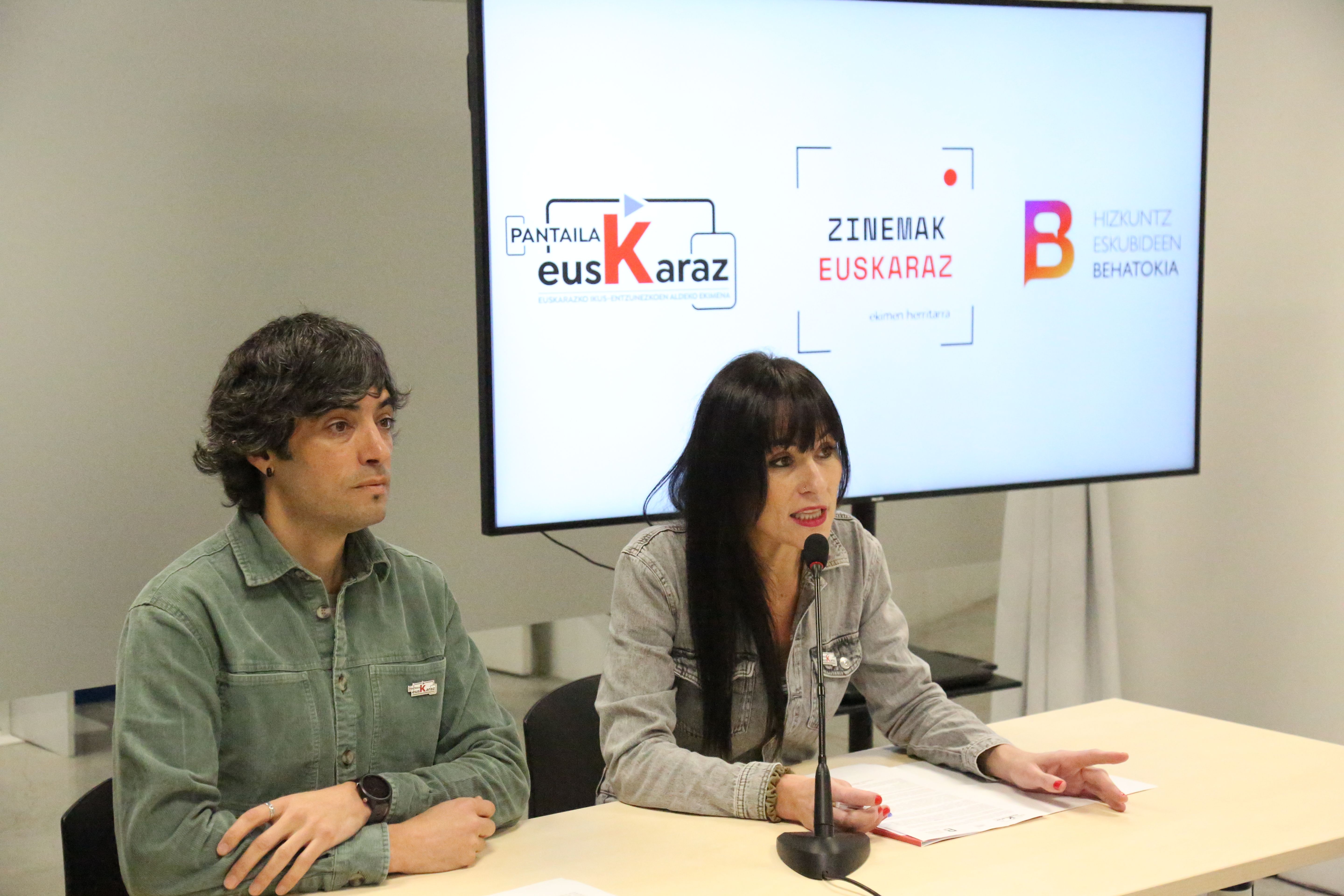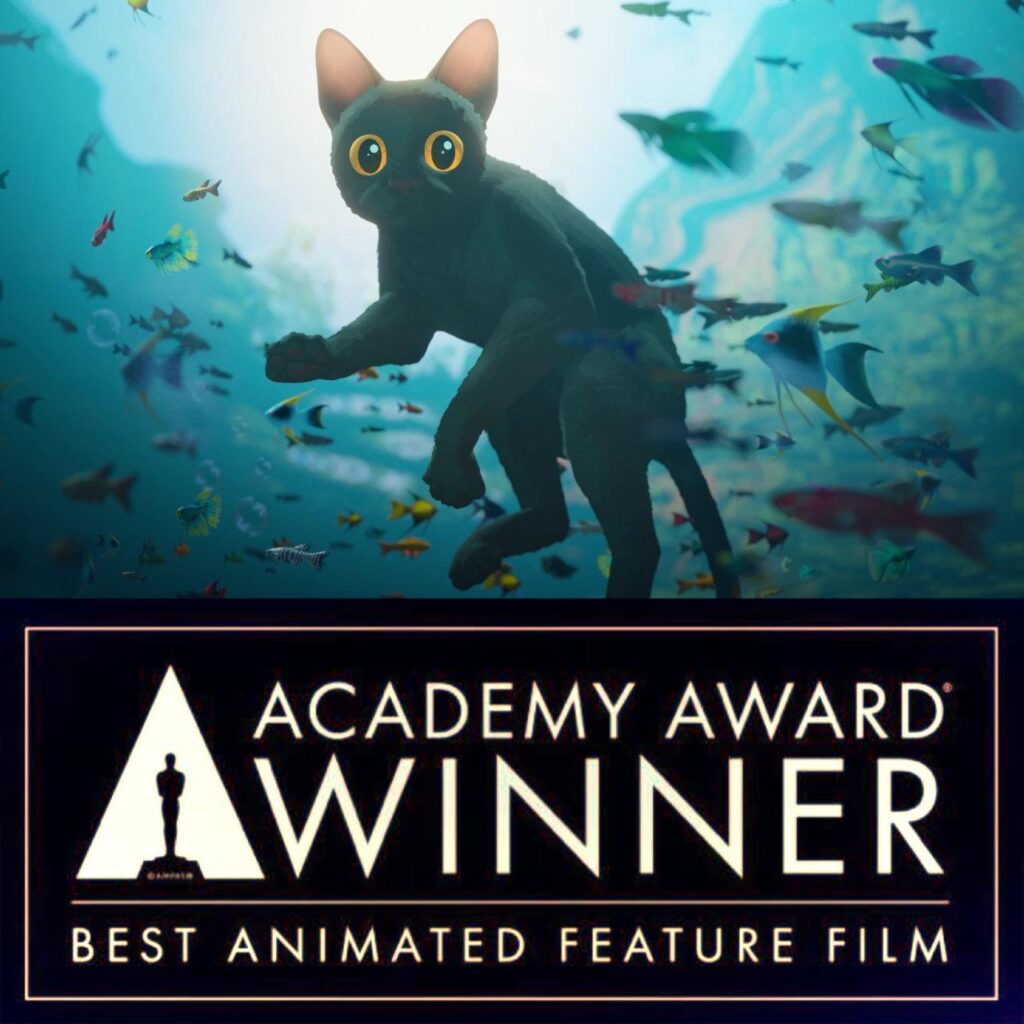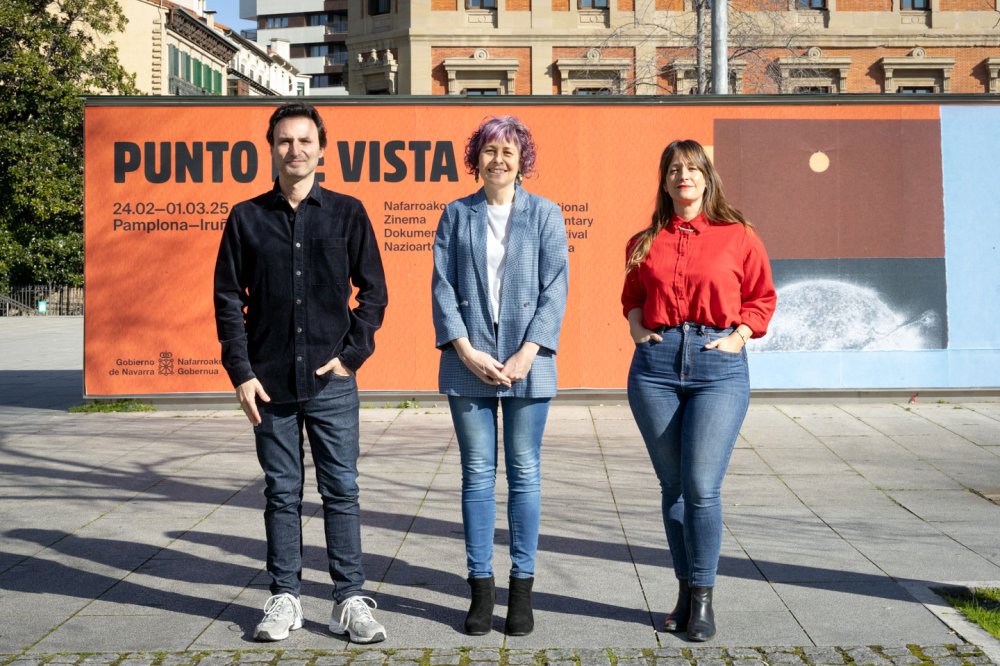"Where is Mikel?" The movie gets the spectator's tortured empathy."
- Asier ETA biok and where is Mikel? It's one of the authors of the movies. The first one did it with his brother Aitor and the other with the journalist Miguel Angel Llamas Pitu. The Pamplona filmmaker believes that it is essential that those who happen and happen in Euskal Herria should also be exposed to foreigners and locals.
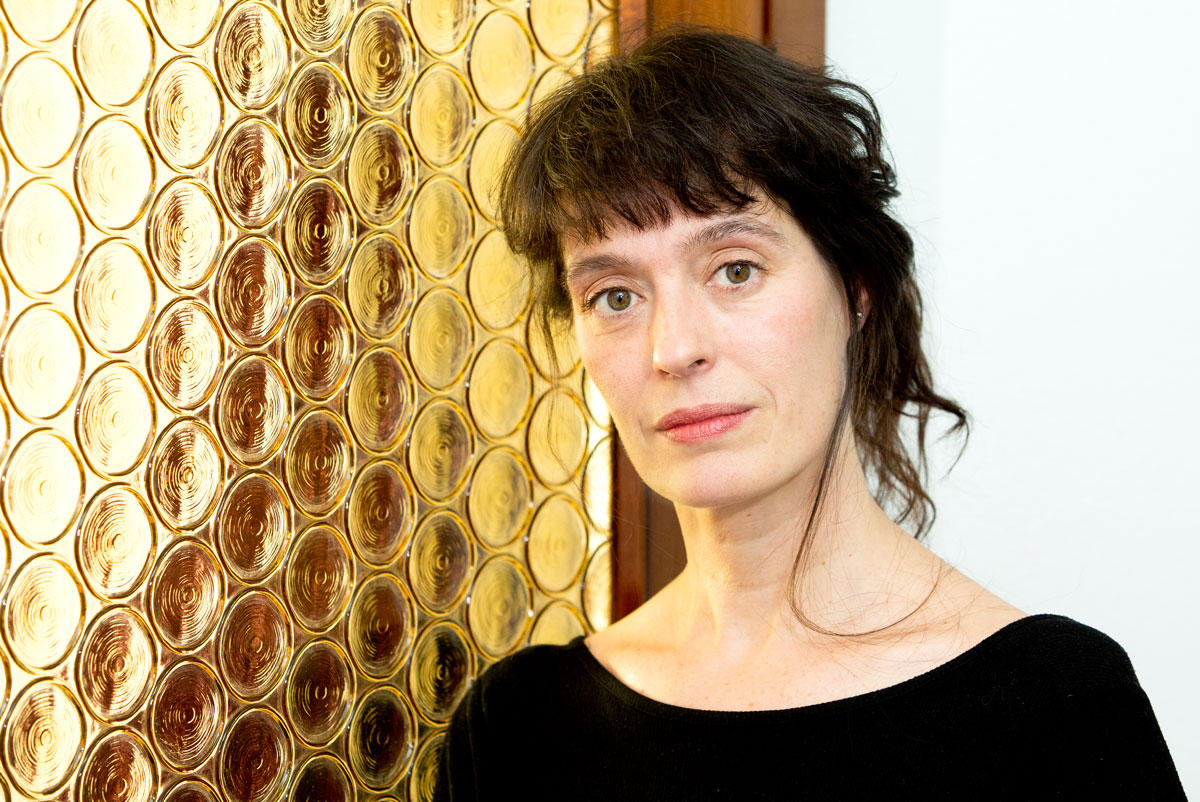
Gaztetxo zela aktore gisa hartu zuen parte Pedro Olearen Akelarre eta Montxo Armendarizen Tasio filmetan. Arte Dramatiko ikasketak egin zituen Madrilen eta Ekuadorren. 1993tik 2017ra arte Ekuadorren bizi zen eta bertan muntatzaile eta gidoigile gisa lan egin zuen hamaika filmetan. Edizio eta gidoigintza irakaslea izan zen Quitoko INCINE Zinema eta Interpretazio Institutu teknologikoan. 2013an Asier ETA biok film dokumentala egin zuen Aitor Merino anaiarekin eta 2021ean aurkeztu du Mikel Zabalzaren kasuari buruzko Non dago Mikel?’ Miguel Angel Llamasekin eginiko dokumental berria.
How were your first steps in the film world?
My brother and I started by chance. When I was nine years old, we came to live in Barañáin when my father was unemployed, because a large part of the family was Navarra. It opened the famous bar Karpanta. I had a stage that many artists went to. One day his father learns that they were looking for medieval men to film the conquest of Albania. He and his bar members were presented and received immediately afterwards. The same happened with Akelarre, and then, as children needed, Aitor and I took us. I was 11 years old and Aitor 9. Two years later I was elected to the film Tasio de Montxo Armendariz. When I was young, I didn't know what to do. What was being studied in the ikastola was not of much interest to me and was lost. Then an agent of actors appeared in our lives. She was an English woman who told us she was very interested in moving to Madrid. So I went to study Dramatic Art and then came Aitor.
When I was there, I cast another cast to make a series in Spain. I was caught and in South America, Ecuador, I had a year and eight months making a series of sixteen episodes of fiction. There I fell in love with Ecuador and also with one from Ecuador. I went back to Madrid to finish the studies, then came that guy and thought, why not go to Ecuador? And I've been there 24 years.
Haven't you worked as an actor, right?
I didn't like acting. Learning yes, but working no, let alone being a woman. I felt uncomfortable. He suffered. You have to be always chosen to act as an actor. So I didn't know, but over time I've seen that I wasn't comfortable because I felt like it was a thing.
I started editing and assembling documentaries and fictional works from Ecuador. By the year 2000, there was a huge technological change, and then many creators had the opportunity to acquire new tools and cameras. There was a lot of work going on, and so I first started editing the works of others, and then guiding them.

Always in documentaries?At the moment
I do not see myself doing a fiction job. I like it a lot, but it costs a lot more to build a fictional project. You need a lot of money. In a documentary, at first everything is easier, but then everything gets complicated.
So is there more women in documentaries than in fiction?
To some extent yes. To make fiction you need a huge budget and trusting a woman by producers is difficult, if you are not well known.
Asier ETA and I in the movie were Aitor and the two. How did the idea come about?
Aitor and the two of us have always been very friends, almost the best friends. We have always had many things and many thoughts in common. Because we are always Basques we have had to give explanations in our environment. When we knew in 2010 that Asier Aranguren, our close and referent friend, was going to get out of jail, we thought we had to do something. At what specific time was the day before. I was in Ecuador and Aitor moved fast to get a camera, the jail went to the portal and started recording. Asier knew nothing.
My brother would take the images and pass them to me. The Body and Force project began in Ecuador. A friend from there took over the production. There we got a subsidy and then we crowdfunding.
Our intention was to explain to outsiders what it is for us, as Basques, friendship, armed struggle, commitment to the people or to the community…
What we intended was to put it in the face of those who have a closed, polarized view, but the truth is that the people of Euskal Herria took it with much more interest than they did, and we didn't expect that. We talked without honesty and without filters, and maybe that's why it would have been so appealing to people here. The film was free and we did it without thinking too much about the conclusions.
What conclusions has this film brought you?
Perhaps for his brother, professionally, he was tougher. You can never know, moreover, which door has been closed to you as a result of a decision. For me, on the other hand, it was very positive. I was in Ecuador and became a filmmaker. That gives you credibility, and I saw, for example, how suddenly a lot of people wanted to work with me. Professionally, it's been very good for me and emotionally very deep, because we had to reflect honestly on a lot of issues.
Some say you justify ETA’s activity…
Many said it, yes. And it is hard to insist that that is not the case. I cannot condemn the armed struggle as the right wants, because I, as a Basque, am part of that struggle. I can't worry. In the presentation of the film I had to insist that I do not agree with the armed struggle. The hardest thing was to give explanations to the press. Many asked us bad questions. And that's not my medium, and many times we got into great waters. That was very hard. In this sense, I felt more comfortable, more careful in Barcelona.
Is it not, therefore, seen in an organisation like ETA?
I don't see myself militating, but working towards equal or similar goals, yes.
What has Ecuador given you?
By living in Ecuador, I realized what it was to be Basque. Many times I say that what I am most grateful for is that he has gone to live in Ecuador. For me it has been to open my eyes. Sixteen languages are spoken there and there are so many other points of view of life. I immersed myself in the mestizo environment. They, in cultural terms, are considered mestizos without problems, but we Basques do not. And we don't realize it, but we too are mestizos in that sense. Having a mestizo culture is very interesting in itself. Mestizos have more sparks because they're two contradictory things at once. The shock, the spark, arises from the management of this confinement. We do not think so. We have the Basque – and if we continue to live as a people, it is thanks to the Basque – but we are colonized within us and we do not accept that.
Why did he return to Pamplona in 2017?
I didn't expect it, but I needed to come back. What lives outside is always contradictory: there I was comfortable, but always looking here. I increasingly felt like I didn't know our culture. In addition, my sentimental life turned upside down, so I decided to put my whole life in two suitcases, close it and return to Euskal Herria.
I came here and went back to Euskera. I felt that what I learned in the ikastola was too short. In wanting and in the impossibility of expressing something. Asier and I, at the time of the movie, had a hard time several times because of that.
Where is Mikel? The project started ten years ago. When did you join?
About four years ago. When I was in Ecuador closing everything sad… Pitu called me [Miguel Angel Llamas] and explained what was there. So I saw it clear that it could be done.
The case of Mikel Zabraise has been very important. I was 15 years old when it happened, and I remember that we lived it in a very intense way. My first demonstration was a great demonstration in your favour. It was very violent. We were all very angry. It was tragic. On the one hand, we knew what happened. On the other hand, we also knew what the end was going to be, but we wanted to have hope.
There are more images than you would expect from this case, right?
Yes, it is. They got a fancy audiovisual archive. In those twenty days when Mikel Zabraise was missing, there were statements and many interviews with her mother, her friend Idoia Aierbe, etc. EITB had just started and its workers worked with a lot of involvement and everything was well documented. In addition, they retained the recordings in their entirety, and all that is a great treasure. There you see, for example, how people of all ages and of all kinds moved to demonstrations. Women dressed in skirt, men with txapela, elderly, young… There was the strength of Christ. It's spectacular the conviction and bravery that people were showing.
There have been many other cases, but as much media as this. It was very long, and the lie they invented was very bad AIDS. How did we expect to believe such a lie? In the Basque Country, the official version has never been believed. Will this be a final version?
Yes, I think so. We were very lucky that all the files were saved and we had the testimony of Ion Arretxe. We don't know all the details of this case, but to those who have been tortured with this film, we tell them that we believe. And on the outside, you're also seeing all of this.
This clearly shows the strength of film. Beyond institutions, what books, poems and film say has a broad impact. All films are an exercise of empathy and this film achieves the spectator's empathy with the tortured.
There's an overdose of information and we often lose. Are documentaries necessary to understand reality?
There are many of us here. They have come from the outside to make the story of our history. Economic power also has something to do with this. Can you do Patria or Where is Mikel? And Fatherland will be more or less likely than ours. In any case, we must be clear that we are also part of the story. We have to claim our account. And by this we mean that it is not just a question of the time, but that torture has been used systematically for years in the fight against terrorism and that it would be good if the State approved it. It would help him grow.
Have you managed to put torture back on the agenda?
Yes, it is. They have a great capacity to look elsewhere, not only in the State, but also in the Basque Country.
Was it part of this strategy that the audios between Juan Alberto Perote and Pedro Gómez Nieto, published by the Public Newspaper, came shortly before the premiere?
Christ's revolt arises. I had to go OK. Listening to these conversations has been inevitable. In the film, there was no time to put everything in. We wanted to gather the twenty days in which it happened, meet in the voices of the protagonists and reflect how the people lived. In addition, it was preferable to leave these audios out of the film for wider dissemination. Entering the documentary, they would be encapsulated in it and there was a higher risk of going unnoticed.
Have you received as much pressure from the media as Asier ETA me in the presentations of this film?
No. It's all been much quieter, because what's so obvious. We have felt more involved than aggressive. Everything has been quieter.
It has to be said, however, that some media have not called us. For example, EITB has not made us too many cases. Especially at ETB2, we've been very few. The Catalan media has shown much more interest.
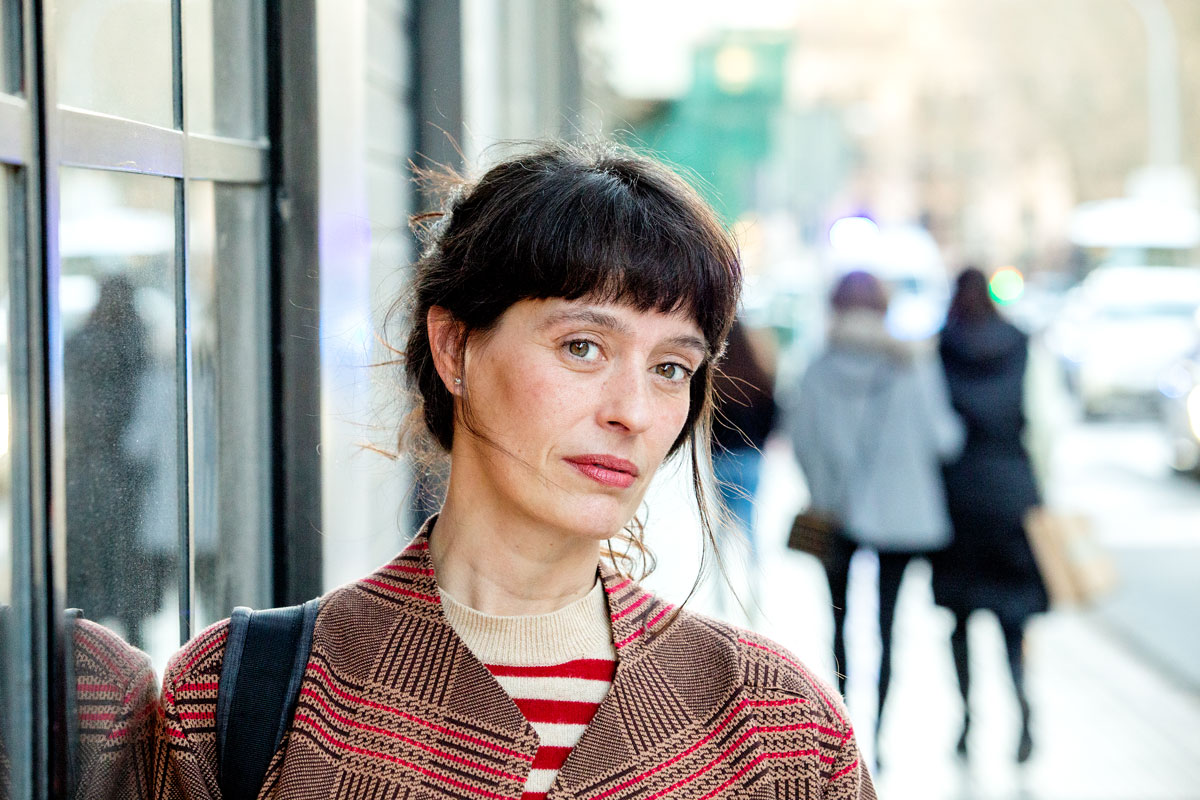
What did Pablo Iglesias and Irene Montero tell you at the Madrid presentation?
I particularly liked what Irene said to me. When I took the picture, I teamed up with him and asked him about the kids, because I know that those who have young children have a hard time going to the movies. He told me that his older son was crying and he explained that they were going to learn something very important. They had to know something very serious that happened in the past so that it doesn't happen again in the future. I really liked this explanation.
Many times we complain about the left of the state because we received little empathy about the dispersal of prisoners, about children with backpacks… and also about torture, but on this occasion they came to the premiere, in addition to two senior officials in the government, and that means something.
Welcome by the public?
Very good here and also statewide. In Burgos it fell immediately from the billboard, but in the rest we have not come down from the top-ten during the weeks.
No other land dokumentalaren zuzendari Hamdan Ballal kolono sionistek jipoitu zuten astelehenean bere herrian, beste hainbat palestinarrekin batera, eta Israelgo militarrek eraman zuten atxilo ondoren. Astarte goizean askatu dute.
Donostiako Tabakaleran, beste urte batez, hitza eta irudia elkar nahasi eta lotu dituzte Zinea eta literatura jardunaldietan. Aurten, Chantal Akerman zinegile belgikarraren obra izan dute aztergai; haren film bana hautatu eta aztertu dute Itxaro Bordak, Karmele Jaiok eta Danele... [+]
35 film aurkeztu dira lehiaketara eta zortzi aukeratu dituzte ikusgai egoteko Euskal Herriko 51 udalerritan. Euskarazko lanak egiten dituzten sortzaileak eta haiek ekoitzitako film laburrak ezagutaraztea da helburua. Taupa mugimenduak antolatzen du ekimena.
Pantailak Euskarazek eta Hizkuntz Eskubideen Behatokiak aurkeztu dituzte datu "kezkagarriak". Euskaraz eskaini diren estreinaldi kopurua ez dela %1,6ra iritsi ondorioztatu dute. Erakunde publikoei eskatu diete "herritar guztien hizkuntza eskubideak" zinemetan ere... [+]
Geroz eta ekoizpen gehiagok baliatzen dituzte teknologia berriak, izan plano orokor eta jendetsuak figurante bidez egitea aurrezteko, izan efektu bereziak are azkarrago egiteko. Azken urtean, dena den, Euskal Herriko zine-aretoak gehien bete dituztenetako bi pelikulek adimen... [+]
Otsailaren 24tik eta martxoaren 1era bitartean, astebetez 60 lan proiektatuko dituzte Punto de Vista zinema dokumentalaren jaialdian. Hamar film luze eta zazpi labur lehiatuko dira Sail Ofizialean; tartean mundu mailako lau estreinaldi eta Maddi Barber eta Marina Lameiro... [+]
A conference for architects has just been held in Madrid to discuss the crisis of the professional architect. They have distinguished the traditional and contemporary way of being an architect. What is traditional? From the epic architect who appears in The Brutalist, where... [+]









